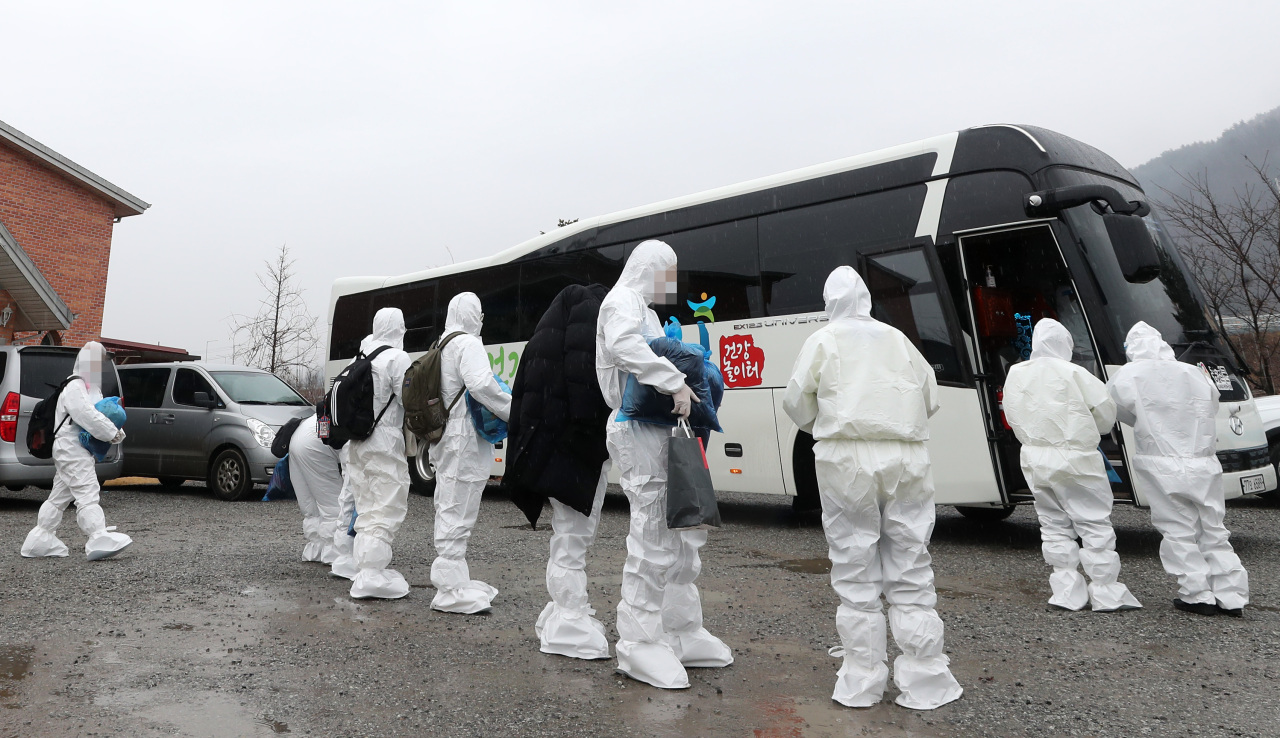With the discovery of coronavirus outbreaks at alternative schools that are not accredited or supported by the Ministry of Education, authorities are concerned that these institutions could serve as a catalyst for the ongoing COVID-19 wave to continue or even gain steam.
Officials say these institutions may not have abided by the social distancing rules as no government agency or ministry has official jurisdiction over them, enabling them to stay in a disease control blind spot.
The threat came to light more than a year into COVID-19 in South Korea, when 127 new cases were found at an unaccredited boarding school in Daejeon run by Christian missionaries.
The IEM School, founded by a missionary society called IM with a mandate to recruit teenagers and train them as international missionaries, responded slowly as the virus spread among its students.
Students went home on the weekends, traveling across the country, and school employees offered information sessions for prospective students and their parents, fanning concerns that the outbreak could spread beyond the region.
The threat grew stronger as TCS Ace International School, another missionary training school owned by IM, this one in Gwangju, also experienced an outbreak, with at least 31 linked cases reported as of Monday.
Another TCS center in Yongin, Gyeonggi Province, reported an outbreak last month that was traced back to a church.
Authorities are worried that the number of new cases could skyrocket, something that has happened before in connection with other religious institutions.
“We are worried that the outbreak could escalate into a second Shincheonji or BTJ crisis,” Prime Minister Chung Sye-kyun said during a COVID-19 response meeting Monday, referring to two religious groups that became sources of outbreaks.
It is already challenging for the government to keep track of how many unauthorized schools exist in the country.
“There seem to be more than 300 alternative schools that have not earned official authorization from us as educational institutions,” an official at the Ministry of Education said. “We don’t have any official headcount or other figures because we simply don’t have much authority over them.”
But a survey from a group representing alternative schools showed that there were 540 unauthorized alternative schools in Korea as of 2017.
And the laws are vague as to which government entity has the right to oversee and monitor their virus control measures and ensure that they are abiding with the social distancing rules.
With their curricula having received no official certification from the Education Ministry, these alternative schools are not legally registered as educational institutions and are therefore not under the scope of any government body.
Local governments have also faced challenges when deciding how to oversee alternative schools, as it is unclear how to categorize them and which rules to impose.
Two groups representing unauthorized alternative schools have conducted regular checks at 128 of their member schools since the outbreak started in Korea last year. But the rest, including the IEM School, have remained in the shadow.
At the IEM School, 120 students entered its boarding facility earlier this month and shared the same amenities for almost three weeks.
Up to 20 students shared a room during that time, and social distancing rules were not strictly followed during the training.
The Daejeon city government said it has asked disease control officials to provide guidelines for alternative schools, emphasizing that the problem should be discussed in other municipalities and provinces as well.
“Unauthorized schools are not certified as official schools and are not categorized as cram schools, so they are believed to be in the blind spot of our legislative system,” said Daejeon Mayor Her Tae-jeong in a press briefing Monday.
The government will gain some authority over these institutions in December, after a legislative revision that passed the National Assembly last month comes into force.
The revised law would require unauthorized alternative schools to register under a new category so that the Ministry of Education can oversee them to a limited extent.
Registration will allow the government to run checks to see whether they comply with the social distancing rules and other safety statutes.
“We expect a lot of alternative schools to officially register before the legislation takes effect (in December), which will allow us to better figure out their statuses,” said Jeon Jin-seok, head of the student support bureau at the Education Ministry, in a press briefing Tuesday.
In responding to growing concerns, the government has stepped up its efforts to scrutinize the operations of unauthorized alternative schools across the country and ensure that virus control measures are followed among their students and faculty members.
“Use this opportunity to run a comprehensive check for all similar boarding facilities of alternative schools and promptly prepare the needed virus control measures,” Prime Minister Chung urged officials in a meeting Monday.
The Central Disaster and Safety Countermeasures Headquarters sent out a text alert urging everyone connected with the IM, IEM School and TCS Ace International School to be tested immediately for the new coronavirus.
“We are preparing ways to manage and supervise these alternative educational facilities in cooperation with local governments and related ministries,” said Health Ministry official Son Young-rae in a press briefing Tuesday.
By Ko Jun-tae (
ko.juntae@heraldcorp.com)








![[Today’s K-pop] Blackpink’s Jennie, Lisa invited to Coachella as solo acts](http://res.heraldm.com/phpwas/restmb_idxmake.php?idx=644&simg=/content/image/2024/11/21/20241121050099_0.jpg)